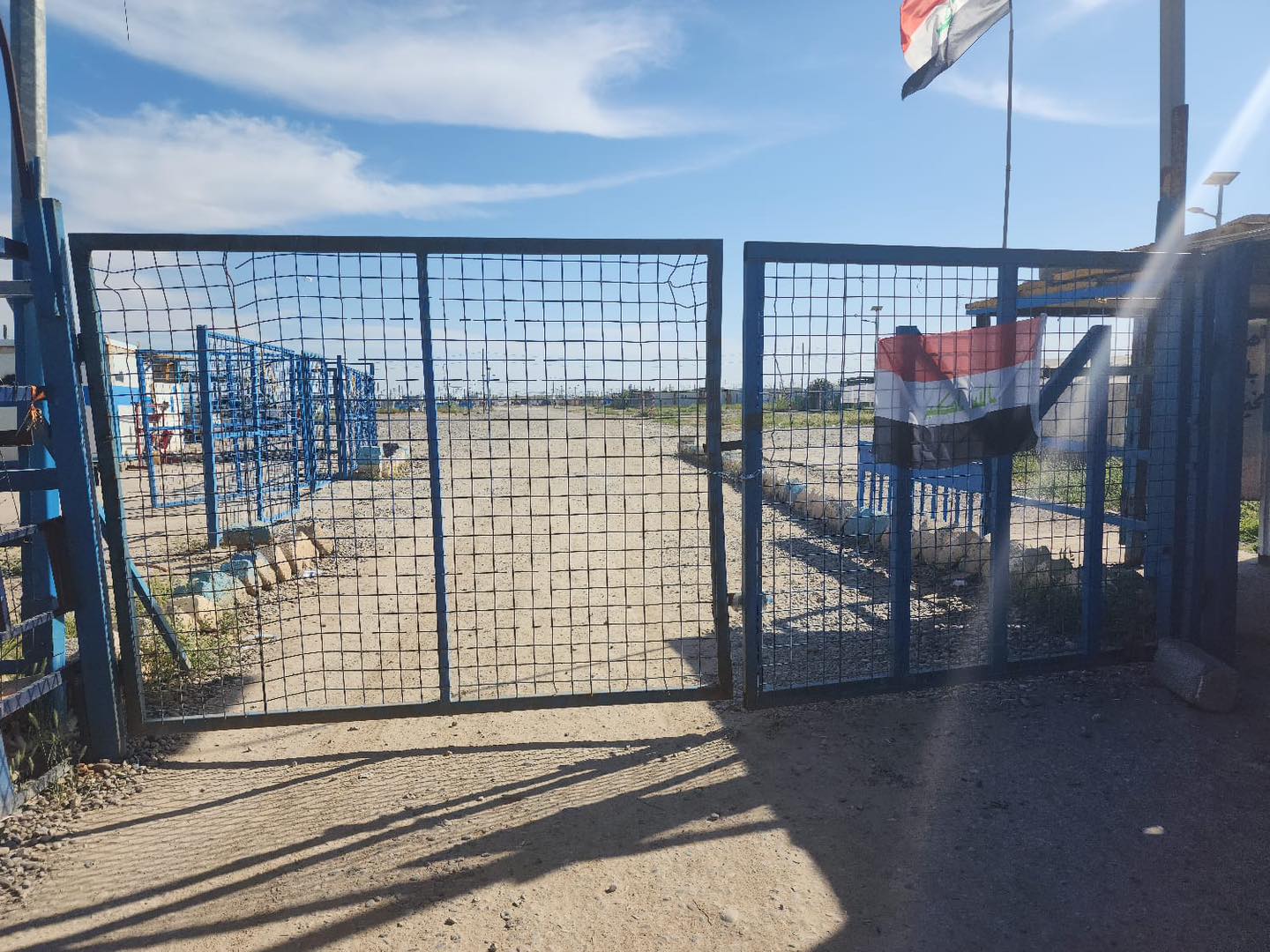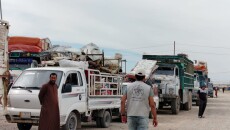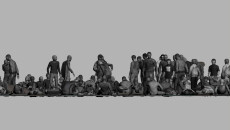The Iraqi Ministry of Migration and Refugees reintegrated 8,000 relatives of the extremist militants of the Islamic State of Iraq and Syria ISIS in several provinces after three months of their stay in Al-Jad’a camp in Nineveh, preparing them for life in society despite the concerns of the parliamentarians and local councils.
The ministry recently announced the return of 150 families of ISIS members from al-Al-Hol camp in al-Hasaka province, northeastern Syria to Al-Jad’a camp in Nineveh, bringing the total number of returnees to Iraq from the camp to 10,000 people, making 2,600 families.
“These families are being transferred without our knowledge or the knowledge of the Nineveh administration. So far, 21 batches have been returned from Al-Hol camp to al-Jeddah camp,” Shirwan Dubardani, a member of the Iraqi parliament for Nineveh province, told KirkukNow.
“We have many concerns about the process, but this is the work of the Ministry of Migration and Refugees with the security services.”
Al-Hol camp, east of al-Hasaka Kurdish province in northern Syria, was home for about 72,000 people affiliated to IS fighters, almost 30,000 of them were Iraqi women and children. The rest were Syrian and other nationalities.
This process is typically carried out in coordination with the National Agency and several civil society organizations. The returnees are kept in al-Jeddah camp for three months. Later, they are transferred to their original hometowns and integrated ino local communities.
Al-Jad’a 5 camp, located in Nineveh province, has been equipped in recent years to house women, children and relatives of Iraqi members of IS after their return from Syria.
“About 8,000 people have been reintegrated into society so far, while another 400 families are prepared to return to society, most of them from Nineveh, Salahuddin and Anbar provinces,” Dubardani added.
In 2014, (ISIS) seized vast territories in northern Iraq, took control of Nineveh province and expanded to Salah al-Din, Anbar and parts of Kirkuk and Diyala provinces until it was completely expelled from Iraq by the end of 2014.
Employing violent tactics, IS systematically targeted local ethnic and religious minorities—most notably Ezidis and Christians—in a brutal campaign to obliterate communities whose beliefs opposed its extremist ideology.
So far, about 8,000 people have been reintegrated into society
The director of Jeddah camp, Adnan al-Daraji, declined to comment when contacted by KirkukNow.
“Al-Jad’a camp is located in Nineveh province but is directly linked to Baghdad. The Ministry of Immigration and the Iraqi National Agency are responsible for everything related to this issue,” said Mohammed Jassim, head of the security committee at Ninewa Provincial Council.
“Three months is not enough to reintegrate them into society because they are relatives of Daesh (ISIS) fighters and have some extremist ideas and it will take more time to prepare them for society,” he believes.
The Jadaa camps in Nineveh have been prepared over the past years to receive Iraqi women, children and relatives of ISIS militants, returning from Syria, where more than 30,000 Iraqi citizens were residing in the Hol camp.
The return of these families accused of having ties to IS sparked protests in the past in several areas of Nineveh, which escalated into clashes. In 2019, the government planned to establish the al-Umla camp in Zummar district, west of Nineveh, to house ISIS families. However, the project’s work was halted due to the protests. Despite the condemnation of the establishment of al-Jada’a camp, the Iraqi government proceeded with opening the camp.
“We hope that those who have been reintegrated into society will not become a threat in the future, and we hope that there will be no revenge by those who lost their relatives in the fight against Daesh,” Jassim added.
“The security services must closely monitor those who are being reintegrated into society, monitor them on a daily basis and collect information about them.”







